Columns
-
Lady Vengeance: The Bride Wore Black Review

Loaded with recognizable tropes just begging to be tampered with, genre film is fertile spoof material, as can be evidence by obvious examples like the pointless Scary Movie franchise, or even within the same film as in those slasher film that knowingly straddle the line between terror and comedy, or B-Movies so tongue-in-cheek campy they function both as a good-humored critique of the genres the are playing against as well as a standalone narratives in their own right. Francois Truffaut’s sometimes goofy, sometimes chilling 1969 film The Bride Wore Black is genre lampoonery in the hands of a French auteur, […]
-
The Blue Velvet Project, #42
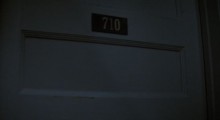
Second #1974, 32:54 What does it mean to speak of the cinematic image in the age of cinematic images? This frame, captured from the 2002 DVD edition of Blue Velvet, isn’t really even a frame; its relationship to the 35 mm source film is ambiguously fraught with the complications of digital coding. For one thing, if the film has been MPEG-2 compressed, what has been lost? The information in the frame leaks in and out, depending on our viewing medium of choice, so that we experience the digital image not so much through presence, but through absence. Spatial and temporal […]
-
The Blue Velvet Project, #41
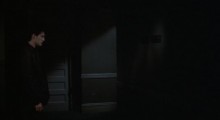
Second #1927, 32:07 Jeffrey and Sandy have agreed on four honks of the car horn: this will warn Jeffrey to leave Dorothy’s apartment. Sandy waits in the car outside, in the night, in her own cocoon of nervous electricity. This is when Blue Velvet begins to go very, very dark, as Jeffrey makes his way through the India Ink of the screen into ever deeper and deeper blackness in what are perhaps the most psychologically violent moments in the film. Where has Blue Velvet taken you? When he woke up he thought he’d dreamed about a movie he’d seen the […]
-
Buck — A Hammer to Nail Review
On its simplest level Cindy Meehl’s documentary Buck tells the story of the cowboy Buck Brannaman, a horseman who travels the United States conducting clinics for “horses with people problems.” First-time director Cindy Meehl met Buck at one of his clinics, and wanted to share his wisdom with a wider circle than the ardent fans he’s built among “horse people.” A wise cowboy, eh? It doesn’t help that the film opens with iconographic Western shots: a cattle herd, a yellow sun, and galloping cowboys, all underlined by David Robbins’ thrumming score. I admit I was a bit skeptical. The census […]
-
The Blue Velvet Project, #40: A Plea For Less
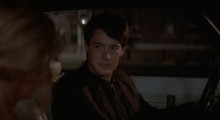
Second #1880, 31:20 A PLEA FOR LESS [This version of the Blue Velvet Project is published on the occasion of Blue Velvet‘s release on Blu-ray with deleted scenes on November 8th.] There are probably many more good and sound reasons to make available Blue Velvet’s deleted scenes than not—I’ll concede that right from the beginning. For one thing, Lynch thankfully decided not to re-cut the film with the new scenes; this is not a “director’s cut.” Since Lynch was under contract to deliver a two-hour cut in 1986, it would make sense that the scenes (part of a longer, nearly […]
-
MEDIA CURRENT: IS NET NEUTRALITY DEAD?
Will net neutrality take effect on November 20th? Approximately sixty days ago, the FCC published its net neutrality rules in the Federal Register, thus setting in motion a formal review process that ends on the 20th. Adopted in December 2010, only now, nearly a year later, they will go into effect. Given the enormous pressure exerted by the communications trust, the rules have not only been significantly watered down, but face powerful challenges from the Congress and in the court. Under fierce pressure from corporate lobbyists and hefty payoffs to Congresspersons on various oversight committees, net neutrality will likely be […]
-
The Blue Velvet Project, #39
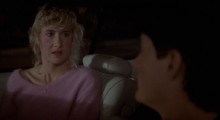
Second #1833, 30:33 1. Jeffrey: Can you drive this car? Sandy: Yeah, but . . . Jeffrey: Leave it in front of my house for me, okay? 2. In Haruki Murakami’s novel IQ84, a group of characters discuss the implications of an act they have committed: You throw a stone into a deep pond. Splash. The sound is big, and it reverberates around the surrounding area. What comes out of the pond after that? All we can do is stare at the pond, holding our breath. 3. One month after Blue Velvet’s U.S. release, another David’s movie was released, David […]
-
The Blue Velvet Project, #38
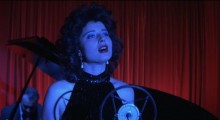
#1784, 29:46 In what is perhaps Haruki Murakami’s best, most neglected novel, South of the Border, West of the Sun, the narrator recalls the effects of listening to a recording of a Liszt piano concerto: And the music itself was wonderful. At first it struck me as exaggerated, artificial, even incomprehensible. Little by little, though, with repeated listenings, a vague image formed in my mind—an image that had meaning. When I closed my eyes and concentrated, the music came to me as a series of whirlpools. One whirlpool would form, and out of it another would take shape. . . […]
-
The Blue Velvet Project, #37
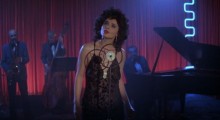
Second #1739, 28:59 The lights on the stage, they illuminate Dorothy, whose talent in this frame to deny Jeffrey her gaze. She is Gilda transported from 1946 to 1986, the curtains behind her unanimated with the sort of predatory menace that the Production Code forbade Rita Hayworth from exploiting. Lynch must have recognized the power of restraint, of not showing, and so nearly the first one-third of Blue Velvet is as tame as an Andy Hardy movie. In this regard, the enduring power of Blue Velvet is that it meets a very specific need and desire: our desire for the […]
-
MEDIA CURRENT: NEWS & ANALYSIS FOR INDIE MAKERS

Indie-Current is a monthly heads-up tracking developments effecting the indie film scene. It’s a big — and forever getting bigger – world out there, so readers are encouraged to e-mail me stories I’ve missed or something you believe is important for others in the indie community. I can be reached at drosennyc@verizon.net. * * * Occupy Wall Street rocks To shouts of “We Are the 99%,” the Occupy Wall Street movement is spreading throughout the country and the world. Indeed, the whole world is watching. FCC latest scam On October 27th the Federal Communications Commission (FCC) announced a plan to reform the […]
